Jiraphon Yenphraphai
Image Sculpting: Precise Object Editing with 3D Geometry Control
Jan 02, 2024Abstract:We present Image Sculpting, a new framework for editing 2D images by incorporating tools from 3D geometry and graphics. This approach differs markedly from existing methods, which are confined to 2D spaces and typically rely on textual instructions, leading to ambiguity and limited control. Image Sculpting converts 2D objects into 3D, enabling direct interaction with their 3D geometry. Post-editing, these objects are re-rendered into 2D, merging into the original image to produce high-fidelity results through a coarse-to-fine enhancement process. The framework supports precise, quantifiable, and physically-plausible editing options such as pose editing, rotation, translation, 3D composition, carving, and serial addition. It marks an initial step towards combining the creative freedom of generative models with the precision of graphics pipelines.
Gotcha: A Challenge-Response System for Real-Time Deepfake Detection
Oct 12, 2022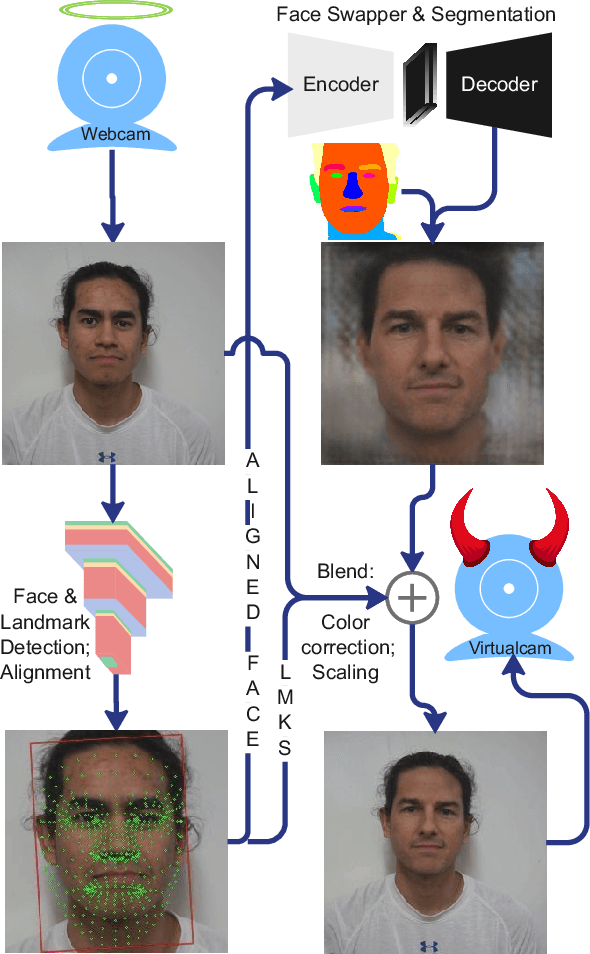
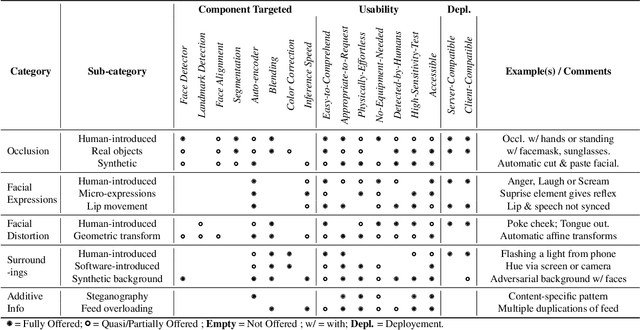

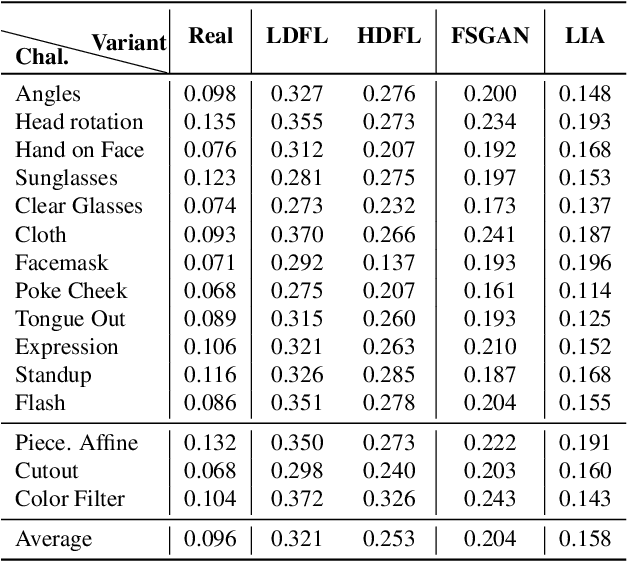
Abstract:The integrity of online video interactions is threatened by the widespread rise of AI-enabled high-quality deepfakes that are now deployable in real-time. This paper presents Gotcha, a real-time deepfake detection system for live video interactions. The core principle underlying Gotcha is the presentation of a specially chosen cascade of both active and passive challenges to video conference participants. Active challenges include inducing changes in face occlusion, face expression, view angle, and ambiance; passive challenges include digital manipulation of the webcam feed. The challenges are designed to target vulnerabilities in the structure of modern deepfake generators and create perceptible artifacts for the human eye while inducing robust signals for ML-based automatic deepfake detectors. We present a comprehensive taxonomy of a large set of challenge tasks, which reveals a natural hierarchy among different challenges. Our system leverages this hierarchy by cascading progressively more demanding challenges to a suspected deepfake. We evaluate our system on a novel dataset of live users emulating deepfakes and show that our system provides consistent, measurable degradation of deepfake quality, showcasing its promise for robust real-time deepfake detection when deployed in the wild.
NeX: Real-time View Synthesis with Neural Basis Expansion
Mar 09, 2021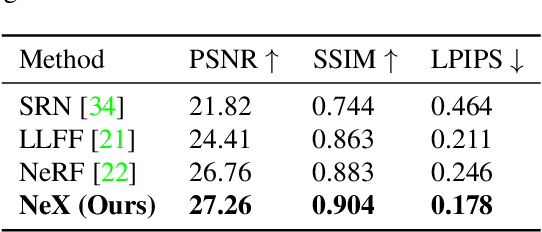
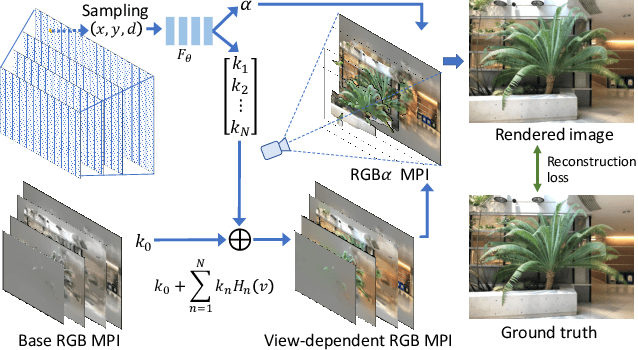


Abstract:We present NeX, a new approach to novel view synthesis based on enhancements of multiplane image (MPI) that can reproduce next-level view-dependent effects -- in real time. Unlike traditional MPI that uses a set of simple RGB$\alpha$ planes, our technique models view-dependent effects by instead parameterizing each pixel as a linear combination of basis functions learned from a neural network. Moreover, we propose a hybrid implicit-explicit modeling strategy that improves upon fine detail and produces state-of-the-art results. Our method is evaluated on benchmark forward-facing datasets as well as our newly-introduced dataset designed to test the limit of view-dependent modeling with significantly more challenging effects such as rainbow reflections on a CD. Our method achieves the best overall scores across all major metrics on these datasets with more than 1000$\times$ faster rendering time than the state of the art. For real-time demos, visit https://nex-mpi.github.io/
 Add to Chrome
Add to Chrome Add to Firefox
Add to Firefox Add to Edge
Add to Edge